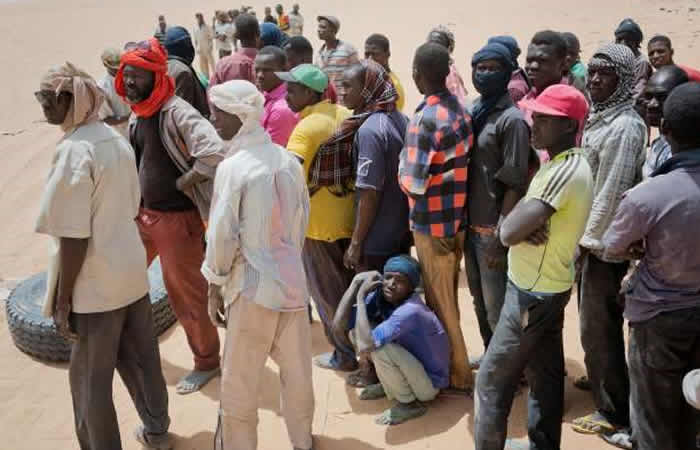
A recent report by the International Organisation for Migration shows that since 2017, a total of 4,877 individuals who were victims of human trafficking from Nigeria have voluntarily returned to the country.
These victims opted to return to Nigeria through the IOM’s Assisted Voluntary Return and Reintegration program. The majority of returnees were women and girls, accounting for approximately 88% (4,261 individuals), while men made up the remaining 13% (616 individuals).
The data reveals that a significant number of victims fall within the age range of 18 to 39 years, with a particular vulnerability observed among those aged 18 to 25 who are often targeted by traffickers.
In the first quarter of 2024, the IOM facilitated the return of 167 victims to Nigeria, with females comprising 81% of the total returnees.
This pattern is not new, as evidenced by the data from 2022 showing a peak in the number of female victims at 908 cases, while male victims were significantly fewer, peaking at 166 cases in the same year.
The prevailing reason for irregular migration during the period under review was economic instability, with a striking 94% of victims citing the pursuit of better economic opportunities as their main motivation.
A mere two percent sought specific job prospects, one percent aimed to escape unfavorable family circumstances, and the remaining three percent had various reasons such as education, family reunification, and fleeing violence.
Italy, Libya, and Mali emerged as the top intended destination countries for the victims.
These three countries accounted for nearly 60% of all returns, with Italy hosting 26% of the returnees.
Other popular choices included Germany, Spain, UAE, France, Lebanon, Senegal, and Cote d’Ivoire.
Among the returnees, Libya was noted as the primary country of exploitation, responsible for 53% of abuse cases, followed by Mali at 29%.
Over the past two decades, Libya has been a frequent destination and transit point for millions of Nigerians seeking passage to Europe via the Mediterranean.
Following the removal of former leader Muammar Gaddafi in October 2011 and subsequent instability, reports have surfaced of escalating incidents of alleged slave trade and extortion in Libya, serving as a source of income for local communities.
The report highlights that the primary challenges faced by victims include forced labor and sexual exploitation.
The data also indicates that traffickers utilized various control methods, with physical and psychological abuses being prominently reported. Deception, threats, and wage withholding further ensured the victims remained ensnared and subservient.
The IOM has collaborated with governmental and non-governmental entities to provide reintegration support to victims, with 3,122 individuals (64%) successfully reintegrated into their communities.
These individuals have received support ranging from medical care to vocational training aimed at enhancing their economic independence and resilience.
The report notes that returnees often experience stress due to uncertainties regarding their future, sources of income, and their position within the community, which can lead to feelings of regret and ambiguity about their post-return circumstances.
